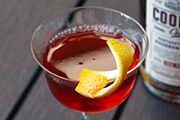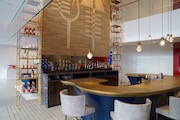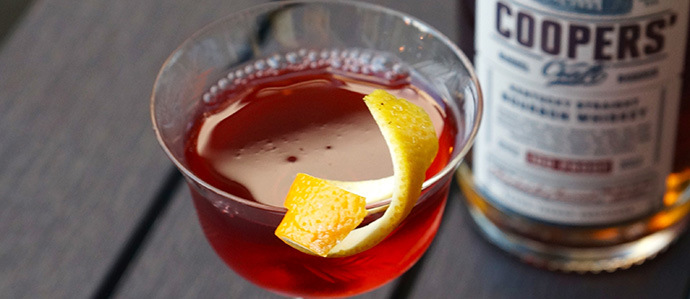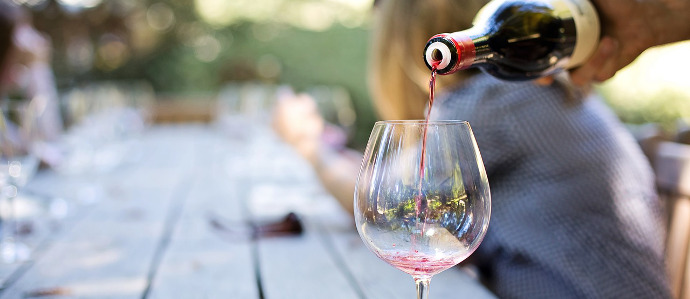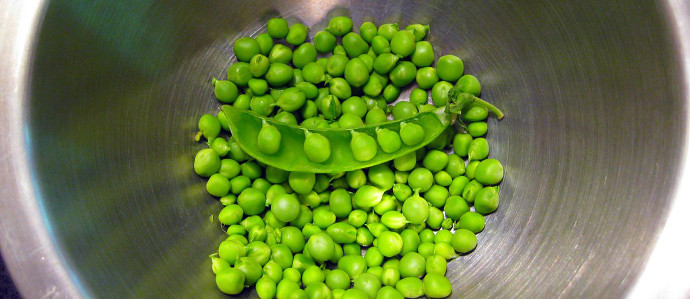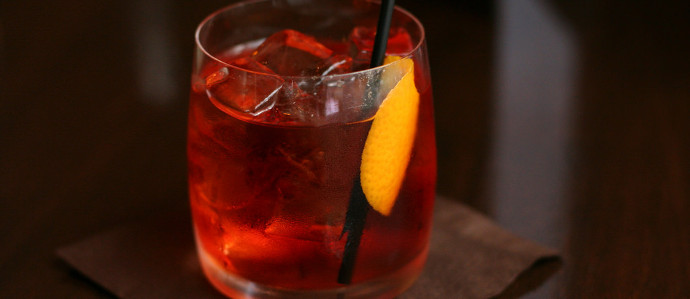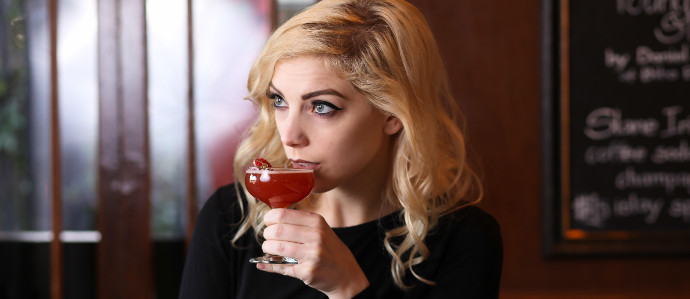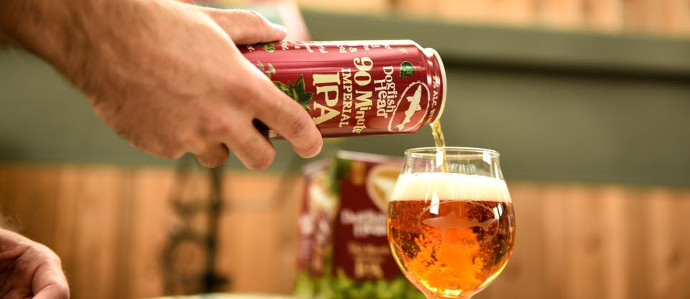Keith Wallace: Corked & Forked
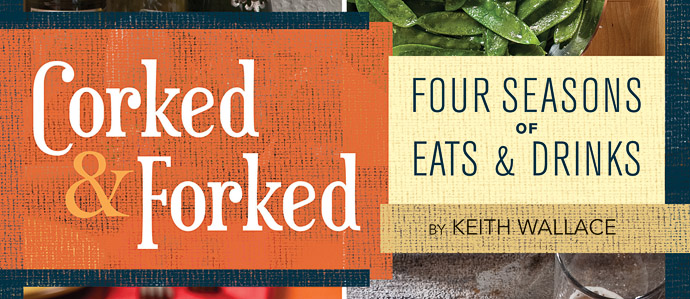
With a breezy essay, Wallace introduces each of four seasons as they relate to eating and drinking. Beginning with the fresh, light flavors of summer and continuing through the nostalgic harvests of autumn, the hearty gatherings of winter and the fresh food renaissance of spring, he presents instructions for creating dining and drinking experiences. Rather than a tabulation of recipes in formal order, Corked & Forked is organized into whole meals, including what to prepare, where to find ingredients and suggestions on how best to complement the edibles with libations.
.jpg) The book, which is replete with elegant photography by Steve Legato and creative graphic design by Joshua McDonnell, “should have stains on a least a dozen of its pages; illegible notes scrawled in the margins; and a scattering of torn corners,” Wallace writes in the introduction. Printed on rustic, rough paper and typset with irreverent slab fonts, the book is the antithesis of a snooty treatise on wine pairing. Beer and cocktails make common showings in the “Beverage Pairing” section that follows each meal.
The book, which is replete with elegant photography by Steve Legato and creative graphic design by Joshua McDonnell, “should have stains on a least a dozen of its pages; illegible notes scrawled in the margins; and a scattering of torn corners,” Wallace writes in the introduction. Printed on rustic, rough paper and typset with irreverent slab fonts, the book is the antithesis of a snooty treatise on wine pairing. Beer and cocktails make common showings in the “Beverage Pairing” section that follows each meal.What could be better with absinthe-cured salmon, perfect scrambled eggs breakfast empanadas with artichokes and maple bacon (autumn’s “Savory Brunch”) than the lager-tomato “Ruddy Mary” or gin-spiked “Monkey Butt”? How about margaritas to set off summer’s “Dinner Under the Stars,” featuring tomato-peach salad, salmon ceviche and beef carpaccio? Plenty of wine advice is included as well, all presented in accessible, non-dogmatic language.
One could almost read this cookbook like prose, delighting in the excitement of culinary exploration, as Wallace takes the reader through the simple whys and wherefores of what to cook, for whom, and when best to do it. Though winter may be gray and dreary, a time when sunshine is “rarer than a unicorn playing jazz on a harpsichord,” the “Ten-Minute Feast” or the “Retro Dinner Party” are sure to lighten the mood.
Wallace seems one of those epicures who is eager to have others join him in pursuit, without any snobbish disdain for those who might not have dedicated the time and energy to research as he. A thorough alphabetical index is found at the back, for easy revisiting of favorite recipes or impromptu kitchen sessions. Also listed are a set of sources from throughout the US for cheese, beer, produce, wine and almost everything else used in the procedures described within.
Wallace exhorts readers not to keep the book on a shelf, and it’s pretty enough to be displayed on a coffee table. But with a price tag of just $23, make sure this cookbook has a perch within easy reach of the kitchen, because you’ll want to put it to good use.




